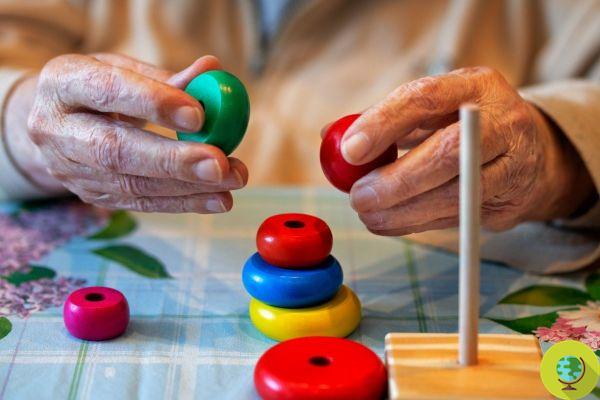
A new study demonstrates how the presence in the brain of the toxic proteins responsible for Alzheimer's originates
Don't store avocado like this: it's dangerousA new study demonstrates how the presence in the brain of toxic proteins responsible for memory loss and cognitive deficits originates
A new study conducted by researchers from Curtin University (Australia) has brought to light the possible cause of Alzheimer's, offering useful material for the prevention and treatment of this disease, which is the second leading cause of death in the country. At the base of the disorder there would be the leakage from the cerebral blood of fat particles carrying toxic proteins: in practice, there would be a 'path' that the blood makes direct to the brain which, if malfunctioning, would lead to the development of the disease.
We knew so far that the hallmark of people with Alzheimer's was the progressive accumulation of particular toxic proteins, called beta-amyloids, inside the brain - explains Professor John Mamo, author of the study. However, we didn't know where these toxic proteins came from, or why they were deposited in the brain.
Research has shown that these protein deposits that form in the brains of Alzheimer's patients arrive in the brain from the fat particles (lipoproteins) carried by the blood to the organ. Being able to control the flow of blood to the brain and the levels of lipoproteins can be crucial in preventing their leakage - and this could open up new possibilities for medical treatments of the disease, perhaps slowing down the processes of memory loss.
(Also Read: What Happens To Your Brain When You Don't Walk Enough)
The study also highlighted a link between the production of lipoprotein-amyloids in the liver and inflammation in the brain, resulting in an acceleration in brain cell death and memory loss. While further research will certainly be needed in the field, this study demonstrates that the abundance of these toxic proteins in our blood can be reduced through a change in diet or the use of specific drugs, thus avoiding the risk of developing Alzheimer's disease or by reducing its effects on a brain already compromised by the disease.
This could have a significant impact globally for the many millions of people living with Alzheimer's. Currently, the team of researchers has already developed a drug (in clinical trial phase) capable of inhibiting the production and diffusion in the blood of amyloids, protecting the brain capillaries of already sick people and improving patients' memory and cognitive functions.
Follow us on Telegram | Instagram | Facebook | TikTok | Youtube
Fonti: PLOS Biology / Curtin University
We also recommend:
- Spending time outdoors has a positive effect on the newly discovered brain
- What happens to your brain when you drink even one shot of alcohol a day according to a new study
- Mozart effect: music is an effective "cure" for Alzheimer's patients, the study


























